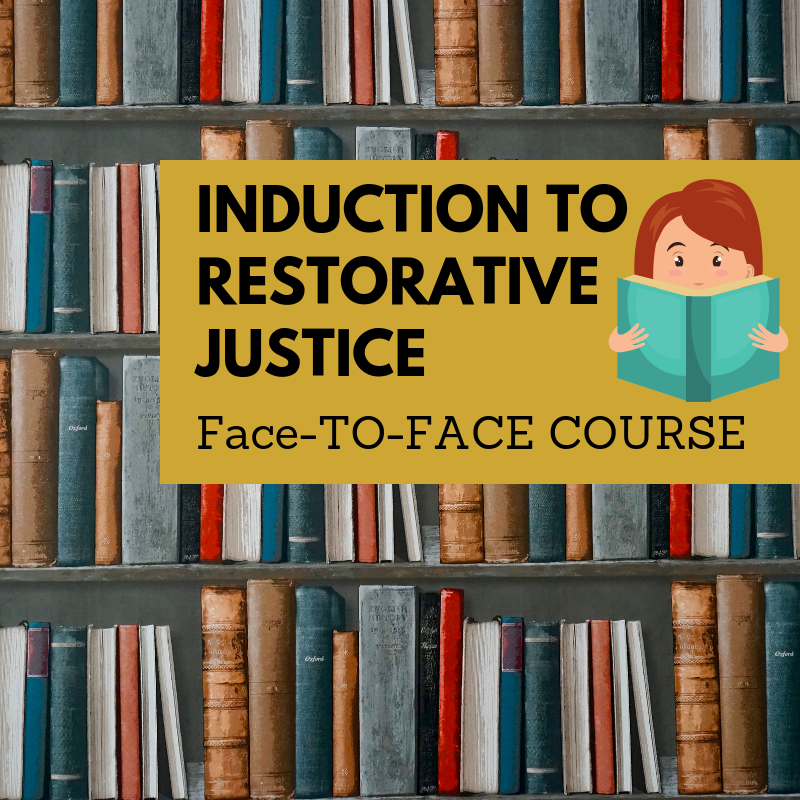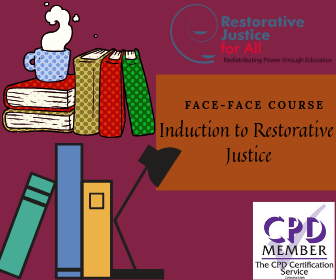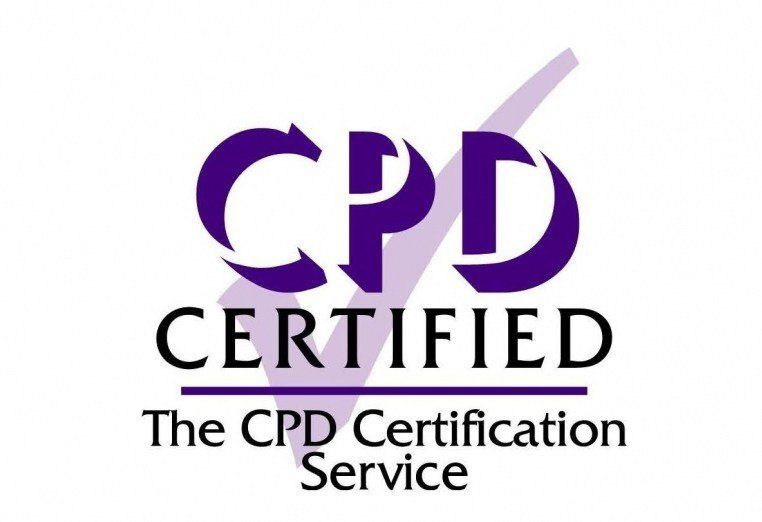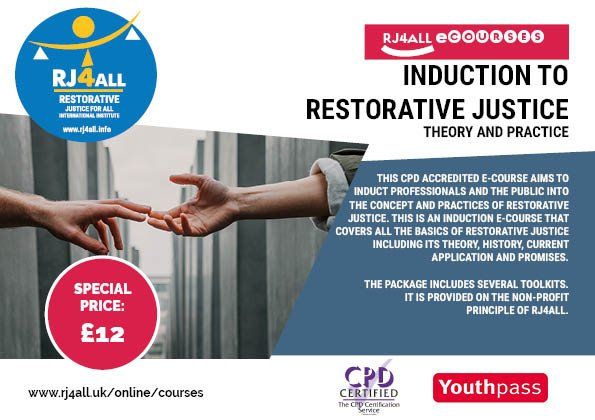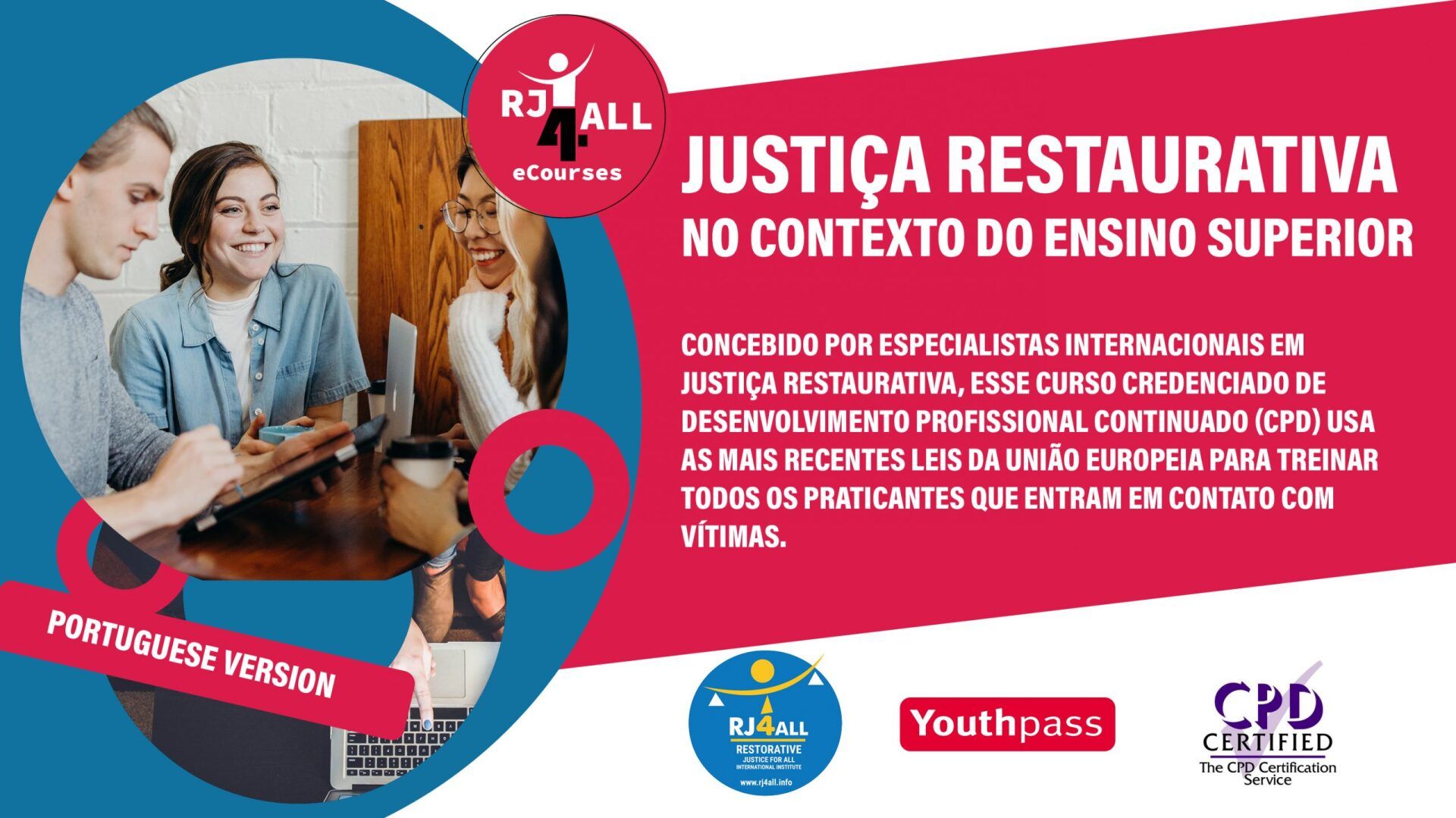Induction to Restorative Justice
Induction to Restorative Justice
CPD course on Induction to Restorative Justice
RJ4All is pleased to offer this CPD accredited face-to-face course supported with training material and a reading list.
BRIEF DESCRIPTION:
This CPD accredited face-to-face course aims to provide a thorough and comprehensive induction to restorative justice putting an emphasis on its theoretical underpinnings and main practices. It consists of 6 parts each including case studies:
Part I: Restorative justice: Fall and Rise
Part II: Restorative justice theory
Part III: Restorative justice practice
Part IV: Restorative justice in the criminal and youth justice
systems
Part V: Evidence of effectiveness
Part VI: Case studies and discussion
TARGET AUDIENCE(S):
- University students
- Victims of crime and users of the criminal justice system
- Criminal justice professionals including probation staff, police, prison staff
- Justice community professionals and volunteers (e.g. neighborhood justice panels)
- Local authorities and public sector bodies with criminal justice responsibilities
- Youth justice professionals (Youth Offending teams, etc Restorative justice providers in the private, public and public sectors
- Victim support organisations.
LEARNING OBJECTIVES:
- Understand the history of punishment and control and the various models that have been adopted to deal with conflicts
- Define and theoretically explain restorative justice
- Be able to place restorative justice in a historical continuum and understand the reasons behind its fall and rise
- Be able to identify the practices through which restorative justice is implemented
- Understand how restorative justice is introduced into the criminal justice and youth justice systems
- Critically approach the norm and practice of restorative justice including its benefits and weaknesses.
- Practice the learning through case study workshops and test the overall knowledge, skills and experience through a CPD accredited exam.
Also available as a CPD ecourse in English
& Portuguese
Restorative Justice for All International Institute (RJ4All)
The RJ4All Rotherhithe Community Centre, 30 Plough Way London SE16 2LJ, UK
admin@rj4all.org | +44(0)7708758600 or 07795678904
Company CIC no : 08684719
| D-U-N-S: 219626583 | Ebay charity ID 125844 | CPD Membership no: 12186 | Paypal Giving Fund number: 1138175 | EC ID: E10008173 | EuropeAid ID: GB-2019-AKO-0605322022 |
European PIC:
941867673 | Ariba Commerce Cloud no: AN11181340179 | UKPRN: 10093192 | GLA Open Project System ID: 13678
